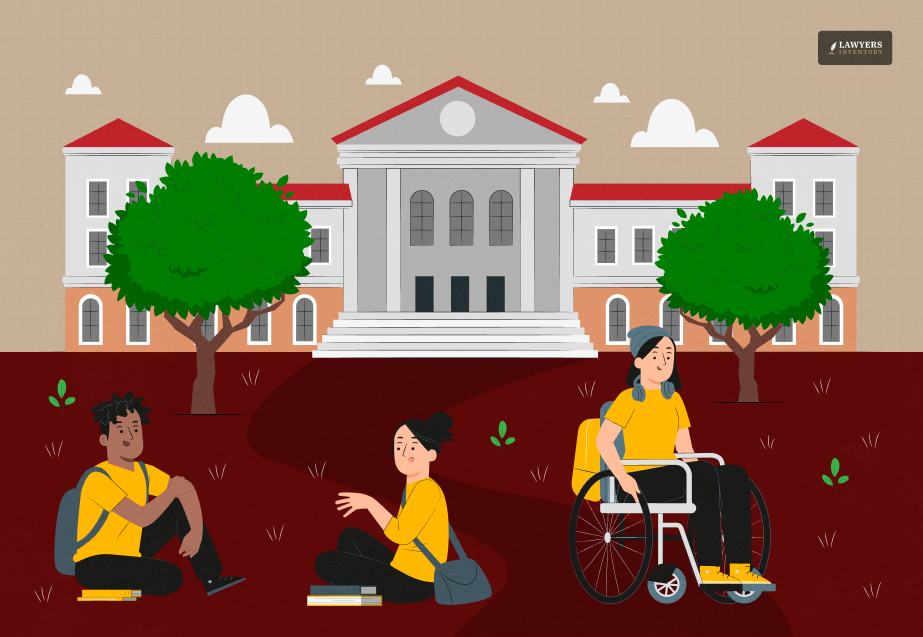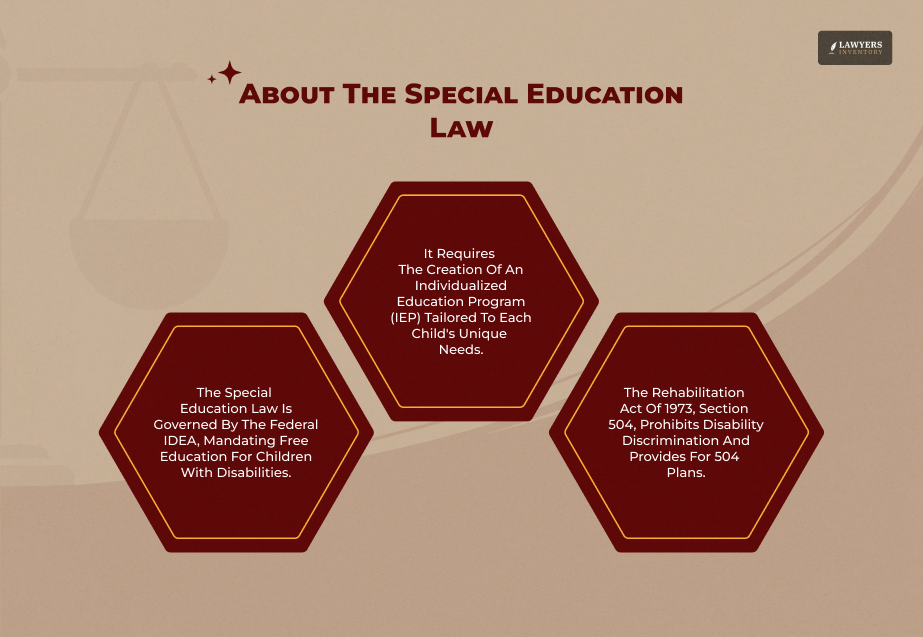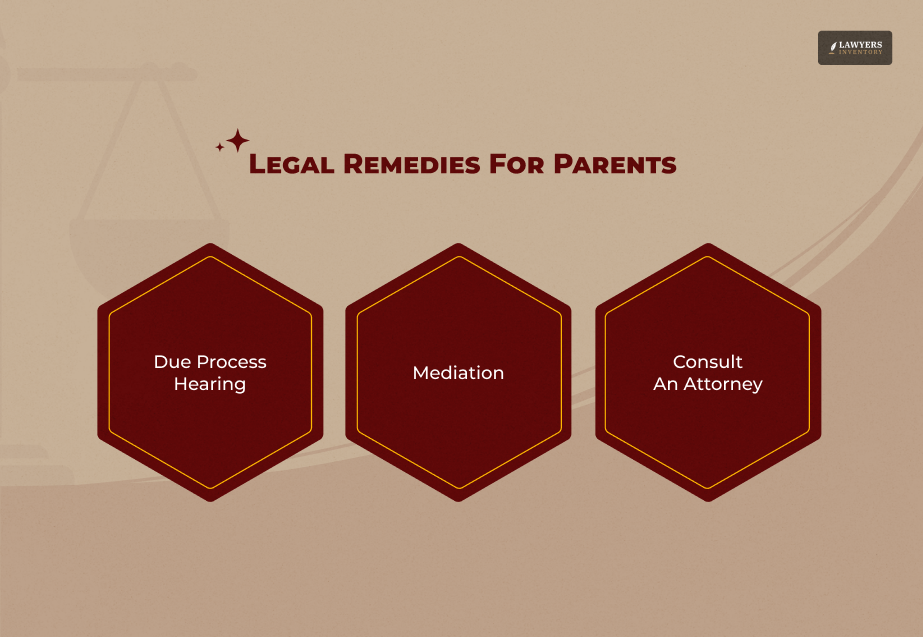
It is very difficult to understand the education system when one has a child with special needs. You, as a parent, are not only a spectator – you are your child’s most powerful lawyer. If you know what your kid’s rights are under the special education law, it will be easier for your child to get the necessary education and support.
In this article, I will explain the following things:
- What is special education law?
- What are the things that you can do to protect your child’s rights?
- Legal steps you should take as a parent.
Additionally, I will also provide a legal checklist for parents. Therefore, if these are the things that you want to know, keep on reading this blog till the end…
What Is Special Education Law?

Special education law has been established as a combination of both federal and state rules and regulations, which are aimed at safeguarding students with disabilities and providing them with equal educational opportunities.
The three major federal laws that have been the basis of the special education law system are:
- The Individuals with Disabilities Education Act (IDEA): Among other things, it assures that children with disabilities get the Free Appropriate Public Education (FAPE) that fits their requirements.
- The Rehabilitation Act of 1973, Section 504: It protects students against discrimination in schools that receive federal funding.
- The Americans with Disabilities Act (ADA): Finally, the ADA provides for disability rights that go beyond the schools, workplaces, and other public services.
Please Note: IDEA focuses on individualized special education services. On the other hand, Section 504 and ADA focus on preventing discrimination. According to their website, it is the “law that makes available a free appropriate public education to eligible children with disabilities throughout the nation and ensures special education and related services to those children.”
Checklist Of Your Child’s Legal Rights
When you are trying to protect your child’s rights, it is important that you understand that there might be some state-level differences. For instance, while federal laws apply nationwide, states often add protections.
For example:
- California: Stronger parent rights in due process hearings.
- New York: Offers early intervention services beyond federal minimums.
However, irrespective of the differences, here is a list of rights that you need to know about:
| Rights | Definition |
| Right to Free Appropriate Public Education (FAPE) | Your child must receive an education tailored to their unique needs without extra cost to you. (20 U.S.C. § 1400(d)) |
| Right to an Individualized Education Program (IEP) | A written plan outlining goals, services, and supports your child needs. |
| Right to Least Restrictive Environment (LRE) | Your child should learn alongside peers without disabilities whenever possible. |
| Right to Non-Discrimination | Schools must provide equal opportunities and cannot exclude your child because of their disability. |
| Right to Parent Participation | Parents must be involved in IEP meetings and decisions about services. |
| Right to Evaluations | Schools must evaluate (and re-evaluate) your child to identify learning needs. |
| Right to Due Process | You can request hearings, mediation, or file complaints if disagreements arise. |
| Right to Confidentiality | Parents have access to school records and control over their child’s educational data. |
If you feel that your child’s rights are getting threatened, it is best that you get special education legal help. They are the best ones to protect you and your little one legally.
Note: Transition Planning for Teens (14–21): IDEA requires schools to help prepare students for college, jobs, and independent living. Parents should ask:
• Does my child’s IEP include a transition plan?
• Are life skills, vocational training, or higher education prep included?
What Can You Do As A Parent To Protect Your Child’s Rights?
As a parent, it is important that you have a checklist of all the things that you can do or the actionable steps that you can take to protect your child and their rights.
Some of the major challenges that parents face include:
- Schools may delay evaluations or deny services.
- Confusion between IEP vs. 504 plans often causes missed opportunities.
- Parents may feel outnumbered in IEP meetings.
- Emotional stress and lack of resources make advocacy difficult.
Additionally, if you are facing some of these issues or are able to identify the signs, you should try bringing a lawyer who specializes in this field. Here are a few of the steps that you should take to save yourself legally:
- Keep Documentation
- Submit Requests in Writing
- Review and Contribute to IEPs
- Know Dispute Options
- Stay Involved
Read Also: Can I Take My Child Out Of State If There Is No Custody Order?
What Are The Legal Remedies For Parents Dealing With Special Education Law?

It is really important for parents to be aware of the rights of their children under the law of the special education system. It gives them a lot of power to act as advocates for their children effectively.
The terms of the law, such as FAPE, IEPs, and dispute resolution, are some of the things that provide you, the parent, with legal protections to ensure that your child receives the education they deserve. Here are some of the things that you need to do:
- Stay up to date with the latest information.
- Keep records of everything.
- If you feel that the task is out of your hands, do not hesitate to ask for help.
Below are the legal measures that can aid you:
- Mediation: An impartial person facilitates communication between parents and schools to find a mutual agreement.
- Due Process Hearing: A legal procedure for settling conflicts.
- Filing a complaint with the Office for Civil Rights (OCR): Reporting cases of discrimination under Section 504/ADA.
- Hiring Legal Support: Special education lawyers can be your guide through complicated disputes.
According to the U.S. Supreme Court decision in Endrew F. v. Douglas County School District (2017), the Court limited the extent to which schools can provide “minimal” progress in IEPs, which is the eventual contributing factor to escalating the standard of FAPE provision.
Read Also: How to Get Full Custody of a Child as a Mother?
Frequently Asked Questions (FAQs):
Now that you are aware of what special education law is, here are some of the questions that most people ask about the same law. Take a look at them before you leave:
In case your child is denied an IEP, it is best to ask for a written reason. Additionally, you should think about the possibility of submitting a due process complaint.
IEPs focus on the student’s needs through specialized instruction. Additionally, the 504 plans specifically aim to provide support in the form of accommodations (such as providing extra time for tests). However, it does not involve specialized teaching.
There is a step-by-step process that schools have to adhere to if they want to temporarily remove/exclude a child with an IEP or 504 plan.
Not necessarily. Parent advocate or mediation is the best way to start. In most cases, the lawyers are for complicated situations. However, if you need legal consultation, you can go ahead.







0 Reply
No comments yet.